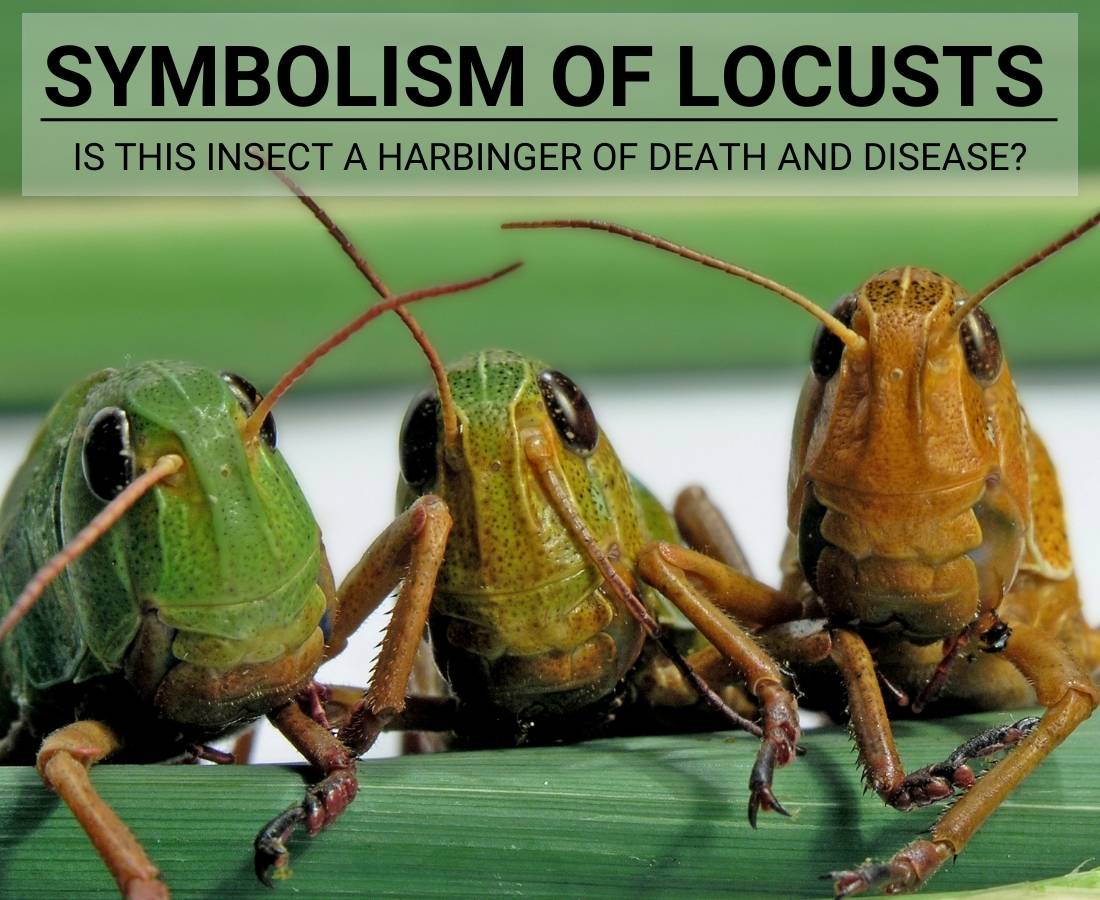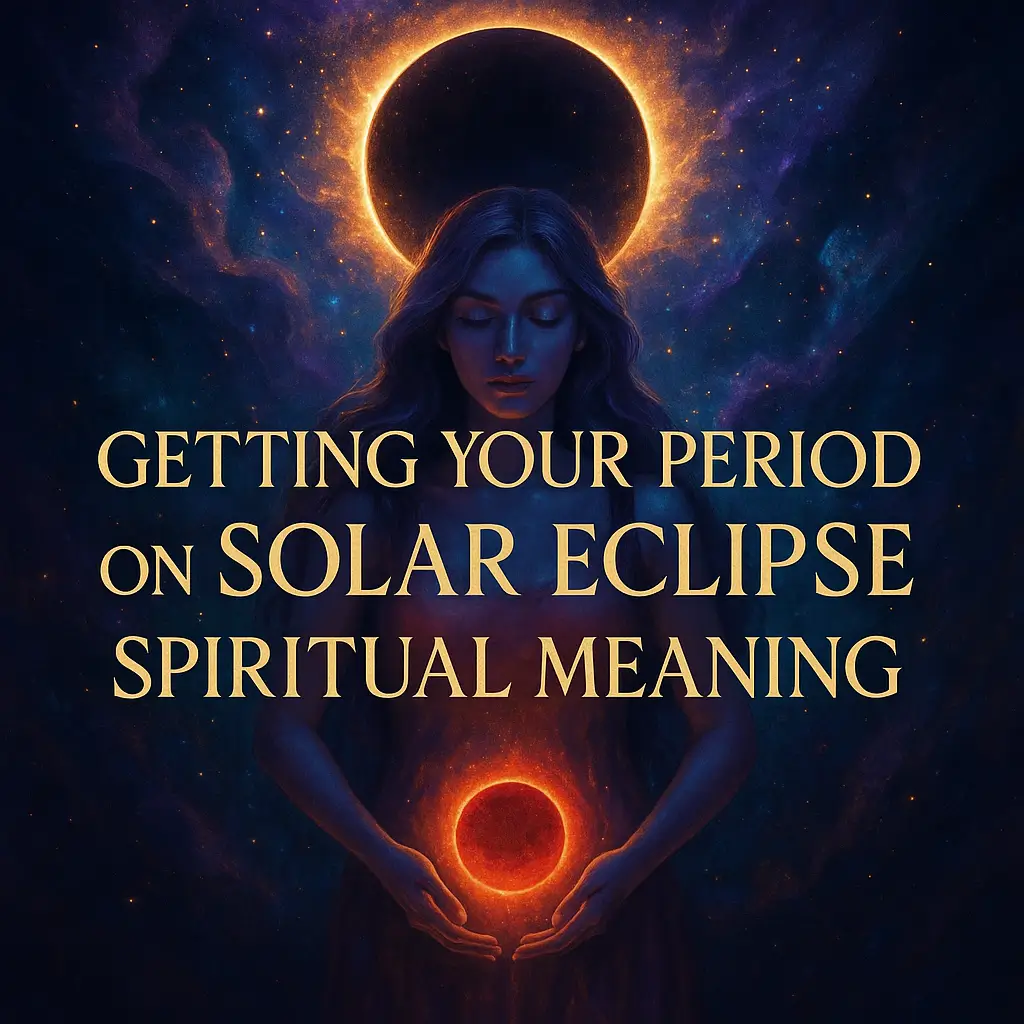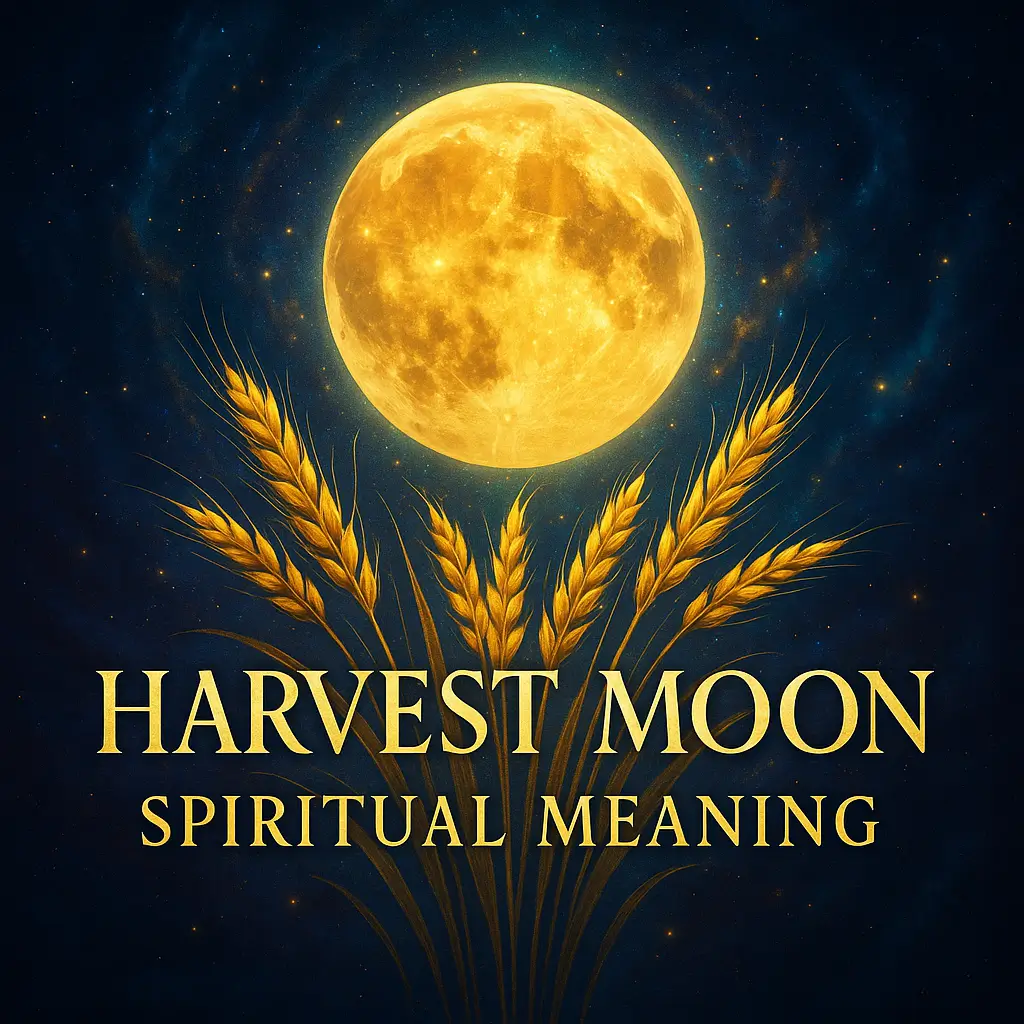Table of Contents
- 1 Key Takeaways
- 2 Spiritual meaning of locusts
- 3 Locusts symbolism in different cultures
- 4 Are locusts bad luck?
- 5 Understanding Locusts: From Biblical Plagues to Modern Significance
- 6 Seeing locusts in your dreams
- 7 FAQ
- 7.1 What is the spiritual meaning of locusts?
- 7.2 Do locusts represent something symbolic in dreams?
- 7.3 What do locusts symbolize in different cultures?
- 7.4 Is there any positive symbolism associated with locusts?
- 7.5 What does a locust plague symbolize?
- 7.6 Why are locusts associated with destruction?
- 7.7 What might locusts symbolize in personal spiritual growth?
Key Takeaways
- Locusts are often viewed as symbols of destruction in many cultures, particularly due to their biblical association with the eighth plague that devastated crops in Egypt.
- Despite their negative reputation, locusts can symbolize positive traits such as longevity and perseverance, being one of the oldest insect species dating back over 200 million years.
- In religious contexts, locusts represent divine warning or judgment, while in dreams they often symbolize stress, chaos or significant life transitions.
- Different cultures interpret locusts differently – they’re seen as apocalyptic harbingers in biblical traditions, colonial invaders in African literature, and agricultural threats warranting divine protection in Chinese culture.
- The appearance of locusts may suggest the need for sacrifice or letting go of something important to make room for growth and new opportunities in your life.
In many cultures, locusts are considered to be a symbol of destruction and bad luck. They are often seen as an omen of forthcoming disaster or as a sign that something bad is about to happen.
Although not all symbolism associated with these insects is negative, follow along for a deep dive into the symbolism of locusts.
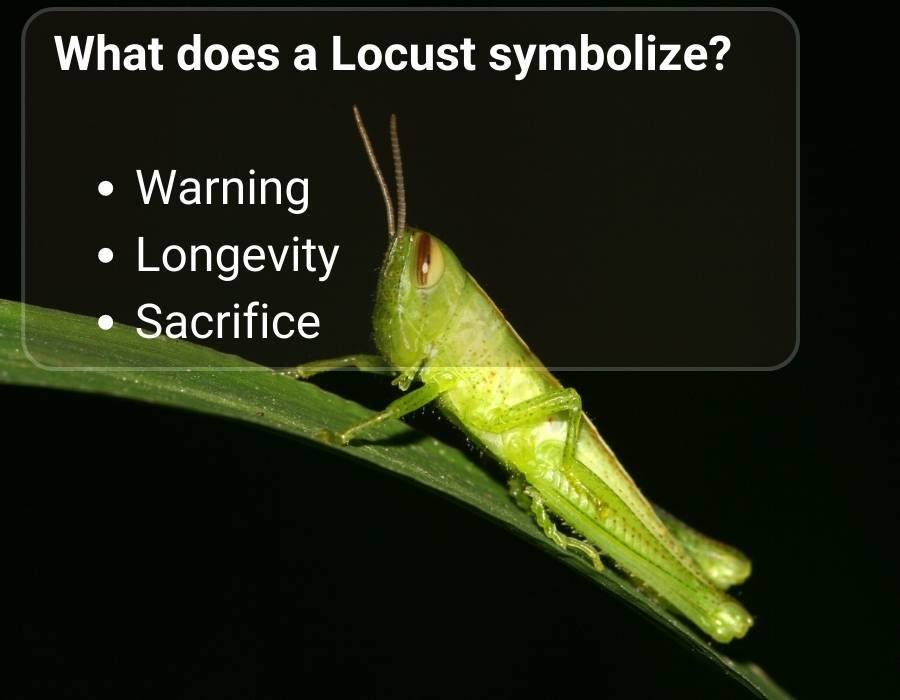
Spiritual meaning of locusts
Seeing locusts is a rarity but something you may experience in your lifetime. If you do happen to see these little creatures, there are a few messages they may bring.
Warning
Locusts have been associated with a sign of impending doom or apocalyptic times. These insects may symbolize a warning to be aware of. If you’re currently embarking on a journey or following a path that may be leading you to a place that isn’t in your best interest, you may see these insects appear in your life to guide you in a safer direction.
“Nature makes the locust with an appetite for crops; man would have made him with an appetite for sand.”
– Mark Twain
Longevity
Locusts are considered one of the oldest species of bugs. They are believed to have been around 252-201 million years ago.
Seeing these bugs appear may be an indicator that you are a strong person who stays committed and dedicated to what you set your mind to. If you’re considering quitting or stepping back from a situation, the locusts urge you to continue forward in your efforts.
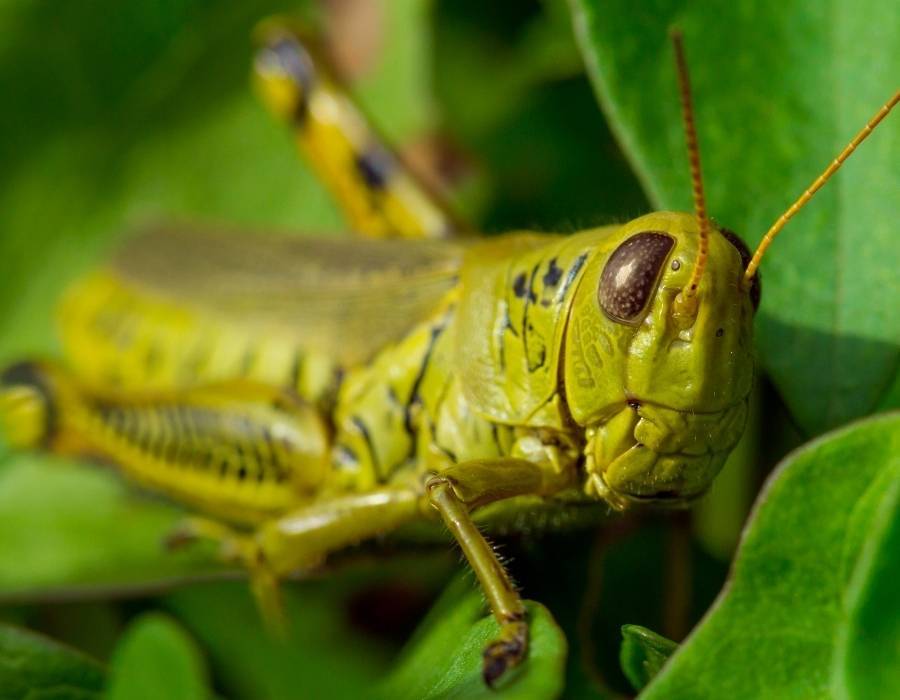
Sacrifice
Throughout history, the locust has plagued humanity, coming in swarms and causing destruction. These creatures have destroyed crops, taking away what’s vital and necessary for survival.
In life, in order to move forward or gain certain desires, there must be an act of sacrifice to achieve this. The locusts symbolize the need to restrict yourself in some way or give something important up in order to make room for something greater.
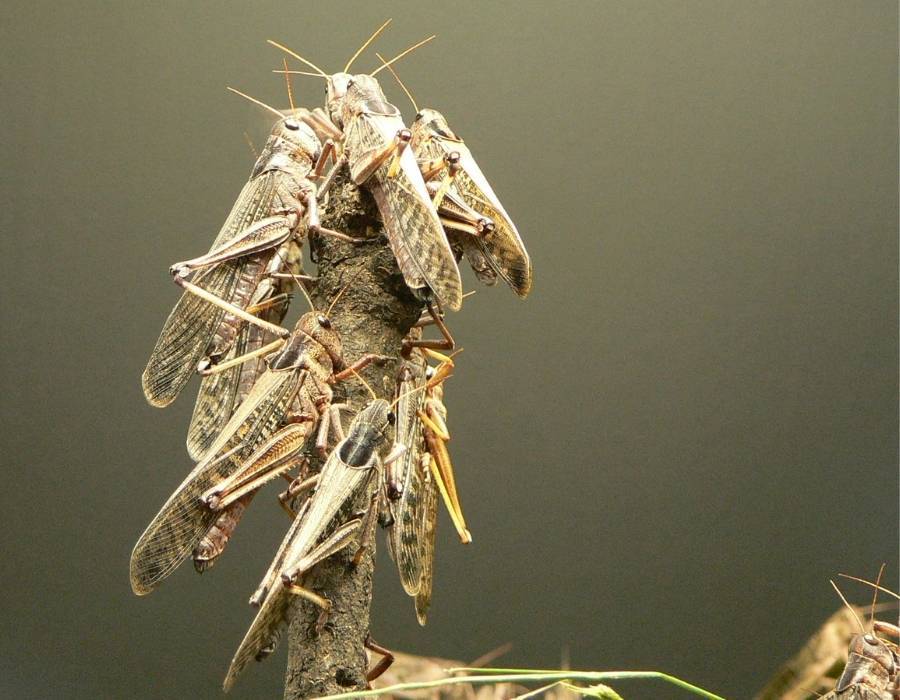
Locusts symbolism in different cultures
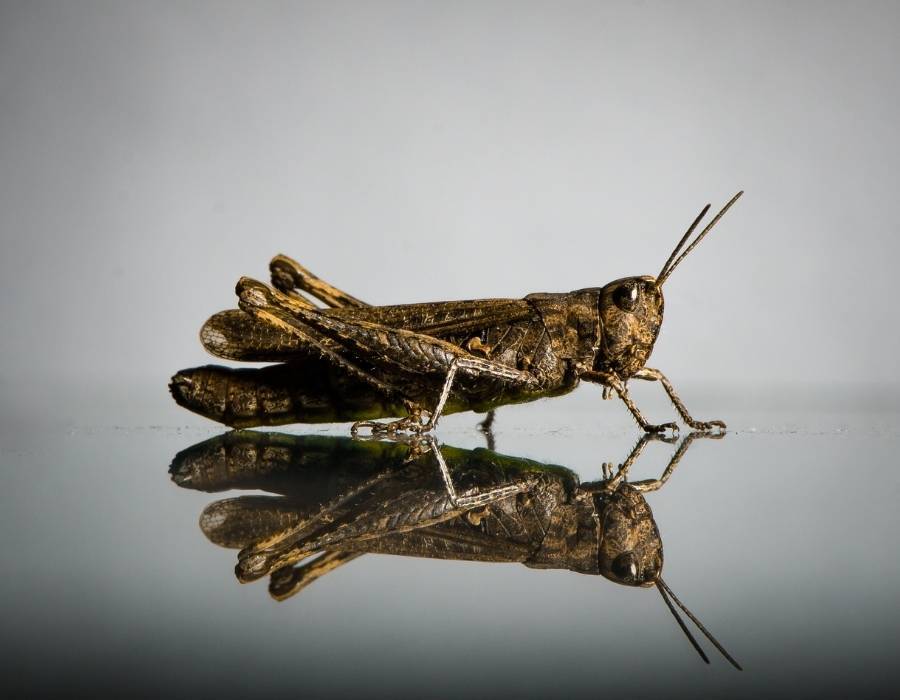
Locusts may be the most popular insects depicted throughout many cultures throughout history. Due to their religious association and destructive tendencies, they have played an important role in many people’s lives.
Bible culture
In ‘Moses and the Ten Commandments, Moses is warned by God of the ten plagues that will conquer the earth. The 8th plague described an infestation of locusts that would cover the earth and eat everything in sight.
These plagues were inflicted by God in order to set the slaves of Egypt free. Many religions follow the bible, and as they have branched out into their own denominations, these plagues have been depicted in various ways throughout history.
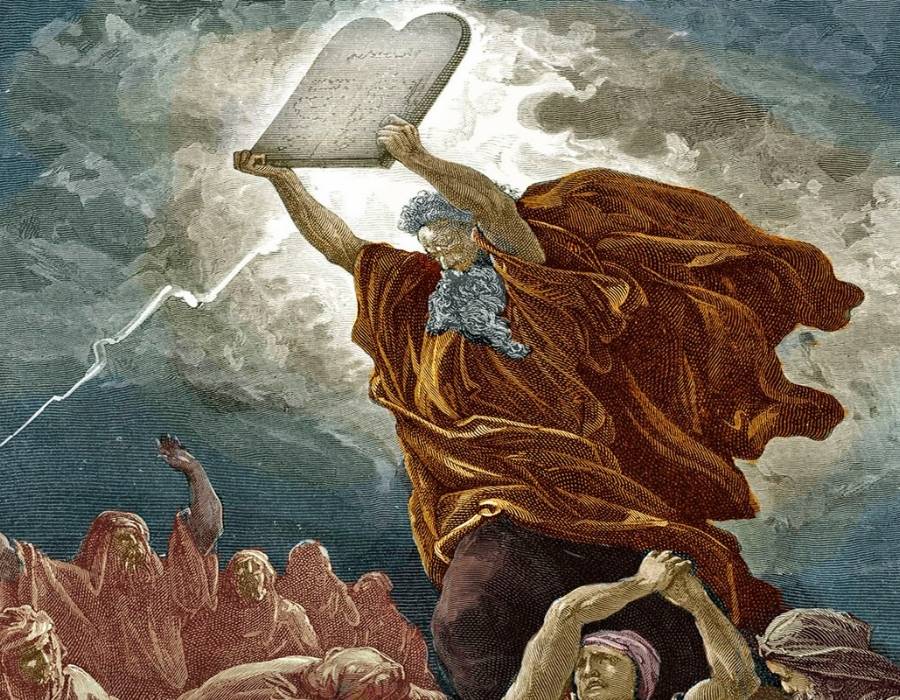
Today, many believe that in the end times, swarms of locusts will cover the earth, initiating the final days of humanity. Locusts live throughout various cycles, and each time they immerse themselves back into the public, there is usually talk somewhere around the world that their presence is an act of God.
To read the full text about locusts in the bible/book of exodus, click here or also check our post about animal meanings in the bible.
African culture
In the book ‘Things Fall Apart’ the story takes place in Africa and follows the story of pre-colonial times within certain parts of the country. There is a point in the book where a swarm of locusts appears, and they are associated with eating crops and destruction.
While these locusts were a symbol of literal destruction, they were also a symbol of warning for the white missionaries that would later invade the area, appearing out of thin air like a swarm of locusts.
Chinese culture
Locusts are known for their destructive habits all around the world. In China, these pests have been incredibly invasive and damaging throughout their history.
Because of this, there is even a Chinese God, Pa-Cha, who is believed to shield their people from insects. Pa-Cha’s main purpose is to protect crops from locusts and other bugs like the grasshopper.
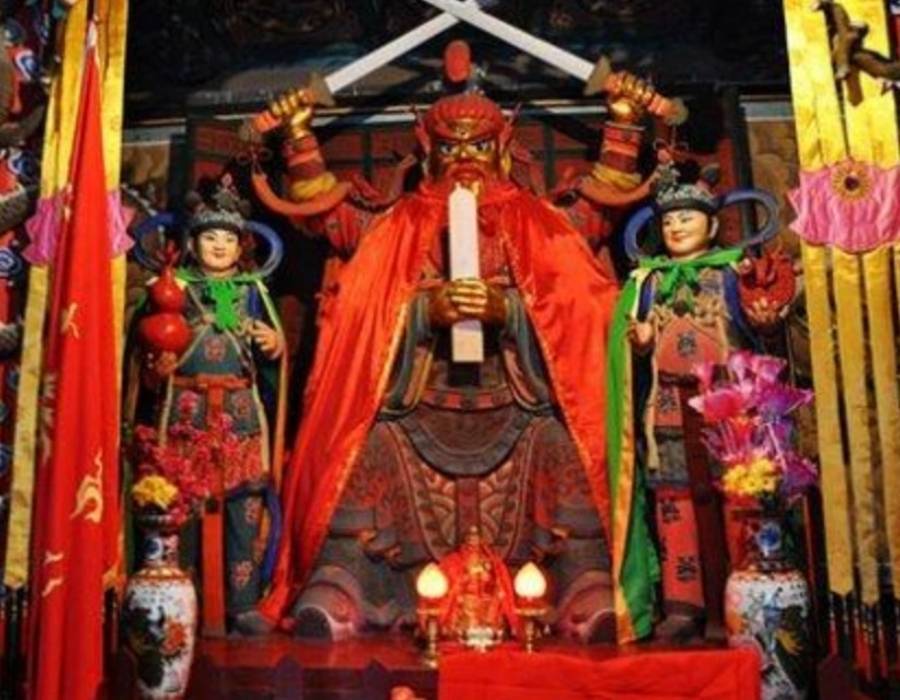
Chinese people worship Pa-cha for keeping their crops safe and praise him for his eternal service to them.
“The frost which kills the harvest of a year saves the harvest of a century, by destroying the weevil or the locust.”
– Ralph Waldo Emerson
Are locusts bad luck?
With all of the bad press surrounding these interesting insects, you might believe that they are a symbol of bad luck. Locusts aren’t necessarily universal symbols of bad luck, especially for those who aren’t religious or follow the teachings of the bible.
Addressing their association with crop failure, many insects, pests, and animals have caused crop longevity and abundance issues. If these bugs were depicted in the bible, they might not be such a popular image for their agricultural influence.
If you see a swarm of locusts or hear about them emerging through part of their life cycles, try to view these insects just as any other out there. Nature goes through cycles and creates and destroys; locusts are no different.
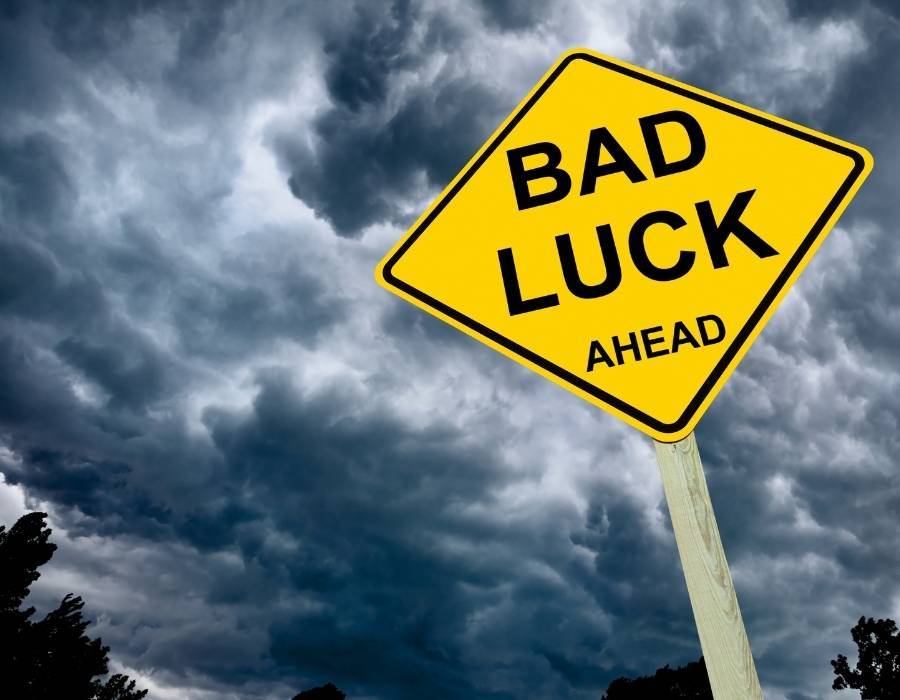
Understanding Locusts: From Biblical Plagues to Modern Significance
The phenomenon of locust swarms has fascinated and terrified humanity throughout history. While the Bible’s plague of locusts remains perhaps the most famous reference, these remarkable insects continue to impact our world in various ways. When asking “what are locusts known for,” most people immediately think of their devastating agricultural impact, but there’s much more to understand about these creatures.
The Difference Between Locusts and Similar Insects
Many people confuse locusts with other insects. Understanding “locust vs grasshopper” differences is important – locusts are actually grasshoppers that have undergone physiological changes triggered by overcrowding, causing them to swarm. The “locusts vs cicadas” distinction is even more pronounced, as cicadas belong to an entirely different order of insects despite their periodic emergence that some mistakenly call “locust plagues.” While a green locust in the house meaning might worry some, a single locust isn’t typically dangerous.
Locust Habits and Habitat
For those wondering “where do locusts live” or “how often do locusts swarm,” these insects typically inhabit grasslands and plains across Africa, Asia, and parts of the Americas. Swarming cycles vary by species but are typically triggered by environmental conditions that promote population booms. The question “do locusts bite humans” has a simple answer – they can, but rarely do, as they primarily feed on plants. Despite their fearsome reputation, locusts aren’t inherently dangerous to humans unless their swarms destroy food supplies.
Cultural and Symbolic Interpretations
The meaning of a locust in the house varies across cultures, with some viewing it as a warning sign while others see it as a mere coincidence. The phrase “restore what the locusts have eaten” from Joel 2:25 offers a message of hope, suggesting that losses can be recovered. Contemporary works like “The Day of the Locusts” by Nathanael West and “The Burning of Los Angeles painting” use locust imagery to represent societal chaos. Even extinct species like the Rocky Mountain locust, which caused immense agricultural damage in the 19th century, continue to shape our understanding of these insects’ potential impact.
Whether you view locusts as biblical harbingers, agricultural pests, or fascinating examples of insect behavior, these creatures remain powerful symbols in human consciousness. Their evolutionary adaptability, dramatic swarming behavior, and historical significance ensure that locusts will continue to capture our attention and imagination for generations to come.
Seeing locusts in your dreams
If you see locusts in your dreams, you may be questioning if their presence has a deeper meaning than meets the eye.
Stress
One of the main causes of dreaming about locusts is stress. Swarms of bugs may symbolize the chaotic feeling you have within your daily life or any underlying issues that you have ignored eating away at you.
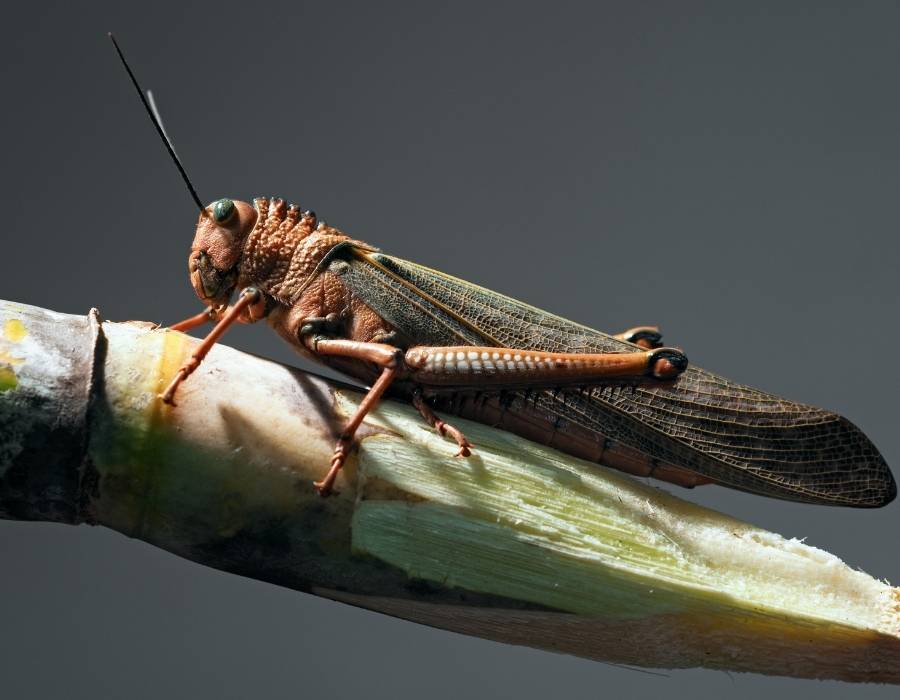
Arrival
In dreams, the subconscious is neutral and uses symbols to the best of its ability to illustrate what’s currently happening in your mind and throughout your life. Dreaming of locusts may indicate that someone or something will be arriving in your life soon.
Life cycles
We experience moving through our own life cycles, the same as the locust. If these bugs appear in your dream, it may signify which life cycle you’re currently experiencing within a situation. You may be nearing its end or finally embodying a currently in the peak of it.
While dreaming of locusts can be alarming at first, there’s no reason to associate them with negativity.
For more information on locusts, check out this video!
In case you came across a dead locust, we’ve got a post about the dead locust’s spiritual meaning as well. Also, check out our post about insect symbolism and some close relatives of the locust, see below.
Sources
- https://www.downtoearth.org.in/news/young/what-does-the-bible-say-about-locusts–71519
- https://a-z-animals.com/animals/locust/
- https://en.wikipedia.org/wiki/Plagues_of_Egypt
- https://dailyprogress.com/community/greenenews/lifestyles/is-a-plague-of-locusts-next-what-to-know-about-the-17-year-cicadas-about/article_21d3845c-a844-11eb-95af-47f866f1bbef.html
- https://mythus.fandom.com/wiki/Ba_Zha
- https://www.learnreligions.com/ten-commandments-700216
FAQ
What is the spiritual meaning of locusts?
Locusts carry diverse spiritual meanings across cultures. They often represent divine warnings or judgment in religious contexts, symbolizing trials that lead to personal growth. In some traditions, they signify necessary sacrifice, while in others they represent perseverance, having survived as a species for over 200 million years.
Do locusts represent something symbolic in dreams?
In dreams, locusts typically symbolize overwhelming stress, chaos, or significant life transitions. They may indicate feelings of being consumed by problems or a warning about destructive forces in your life. Some interpretations suggest they represent the need to address underlying anxieties or prepare for change.
What do locusts symbolize in different cultures?
Cultural interpretations of locusts vary widely. In biblical traditions, they’re apocalyptic harbingers. African literature portrays them as colonial invaders. Chinese culture views them as agricultural threats requiring divine protection. Native American traditions sometimes see them as messengers of important natural cycles.
Is there any positive symbolism associated with locusts?
Despite their destructive reputation, locusts symbolize positive traits like longevity and perseverance. Their ability to transform and adapt represents resilience. Some traditions view them as symbols of abundance (after surviving hardship) and community strength through their coordinated movement in swarms.
What does a locust plague symbolize?
A locust plague symbolizes overwhelming devastation and divine intervention. It represents forces beyond human control that can sweep away established systems. In modern contexts, it can symbolize economic upheaval, environmental crisis, or any overwhelming circumstance that forces significant change and adaptation.
Why are locusts associated with destruction?
Locusts are primarily associated with destruction due to their biblical connection as the eighth plague of Egypt, where they devastated crops. Their ability to consume vegetation equal to their body weight daily and form massive swarms that darken skies has cemented their reputation as symbols of unstoppable devastation.
What might locusts symbolize in personal spiritual growth?
In personal spiritual growth, locusts may symbolize the need to sacrifice or let go of something important to make room for new opportunities. They can represent a period of stripping away the old before renewal occurs, teaching valuable lessons about impermanence and the natural cycles of loss and regeneration.
